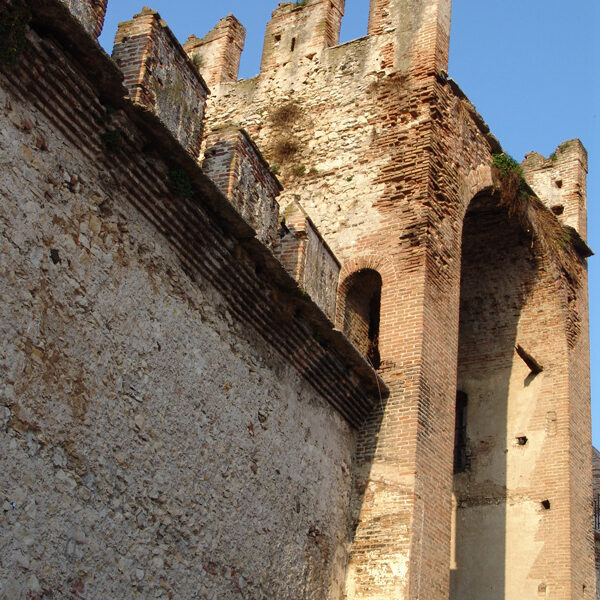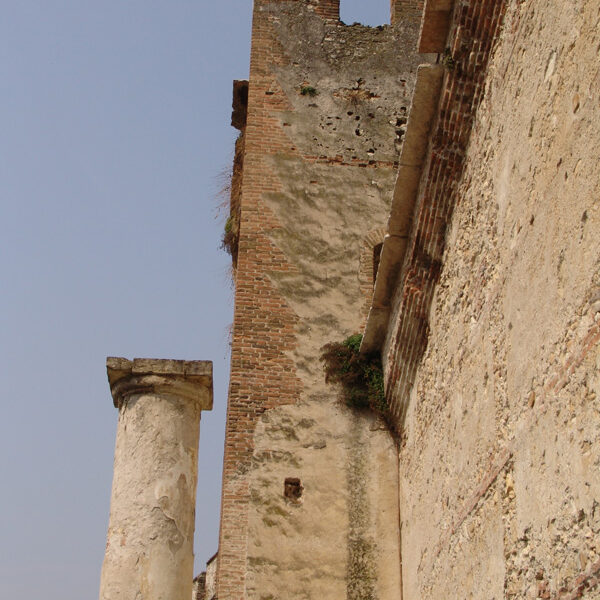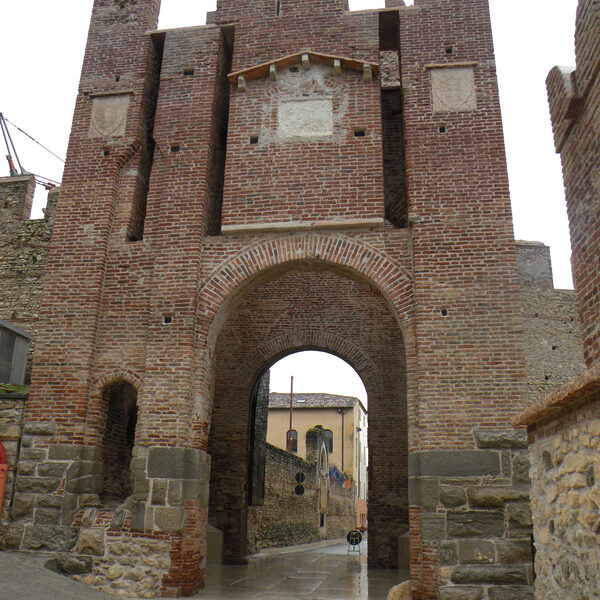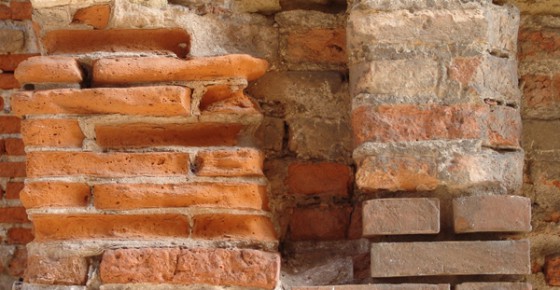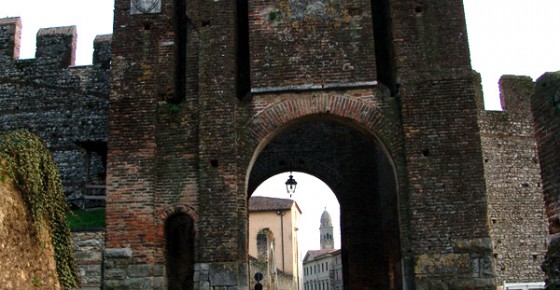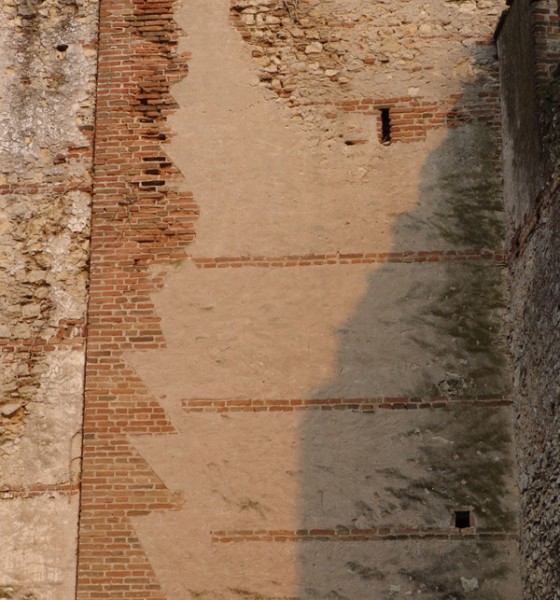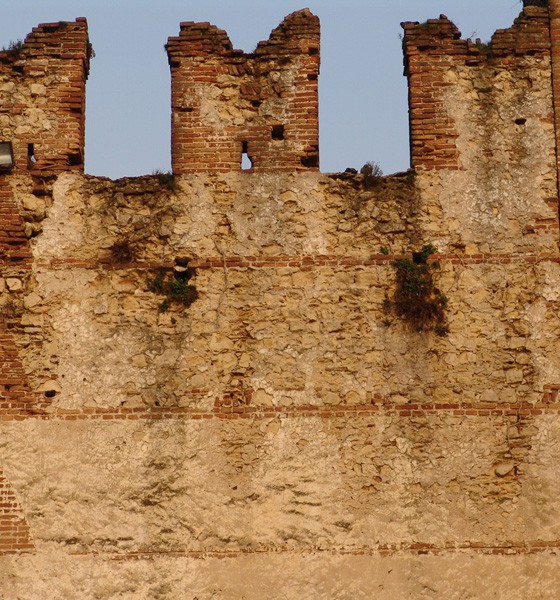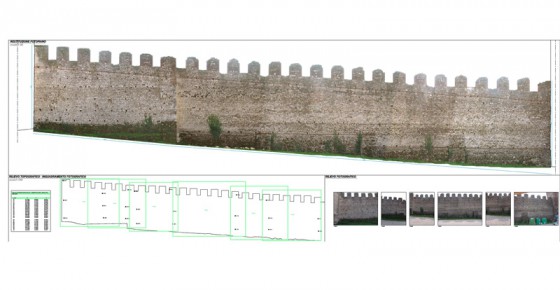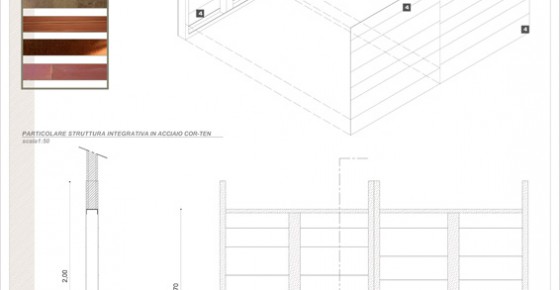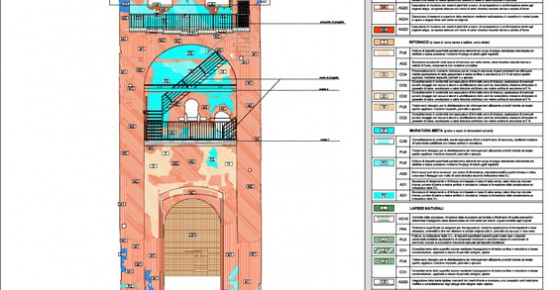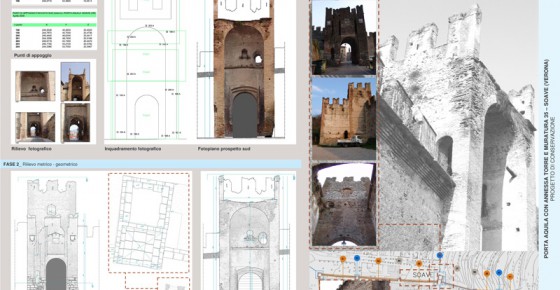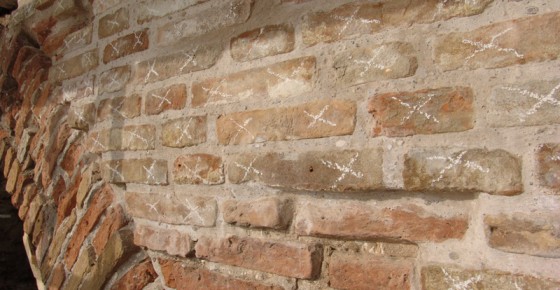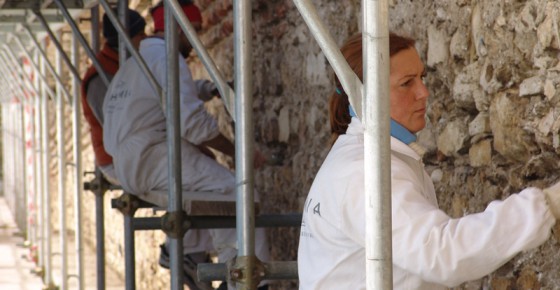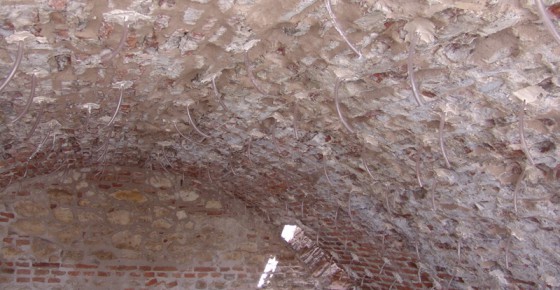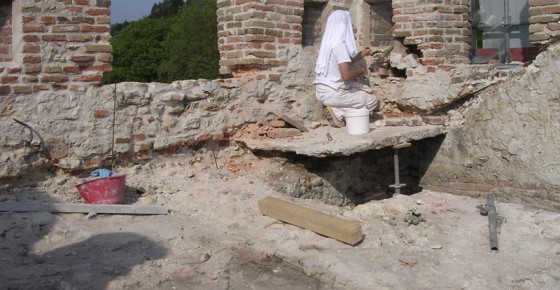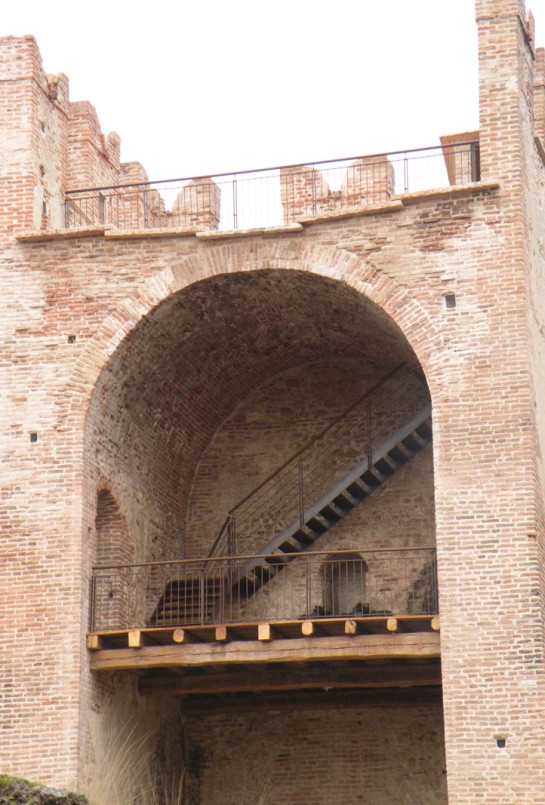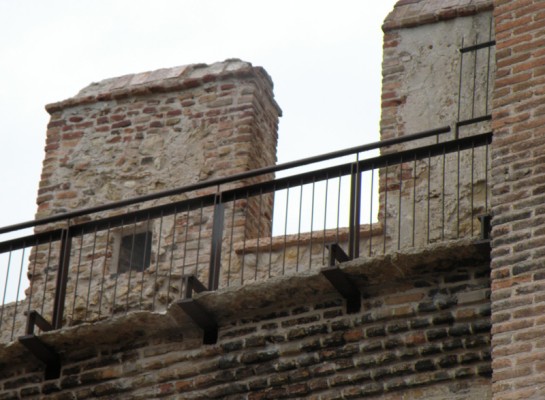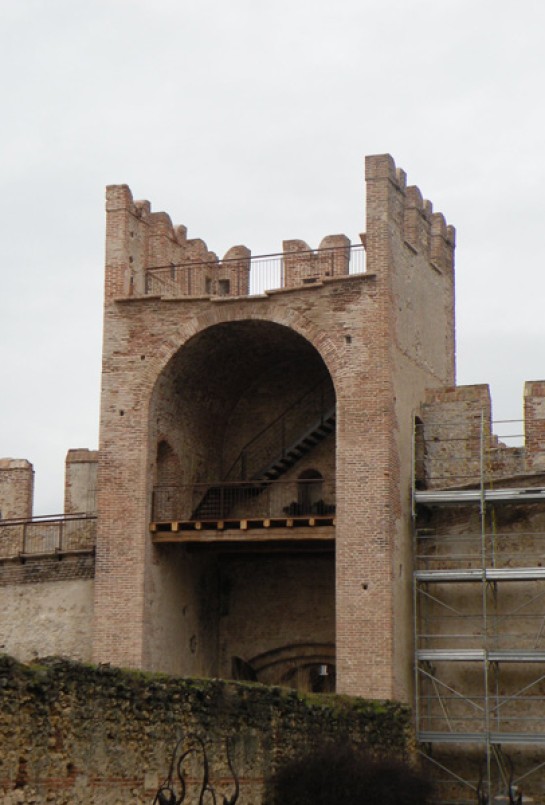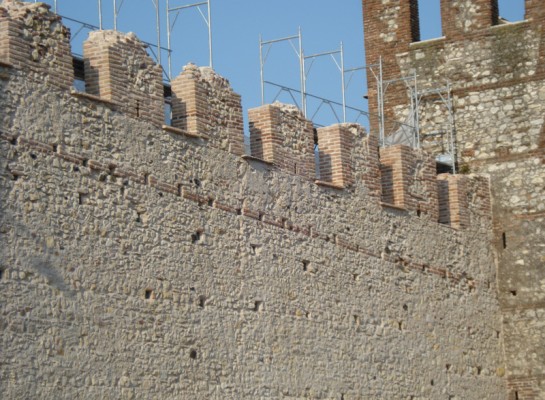PORTA AQUILA- SOAVE – VERONA
At the time of construction of the walls, according to the masterplan implemented by Cansignorio Della Scala in the 14th century, the town developed along a principal axis between Porta Aquila and Porta Verona, two of the three original gateways to the city, one to north to towards the valley, the other one to the South towards the ancient via Postumia.
The building organism of Porta Aquila consists of two buildings well distinguishable in terms of static and historical identity: the Tower, built along the walls, and the front door attached in a second step. The whole complex was the subject of a deep excavation, as evidenced by the diversity of the wall tissue of the existing base and by the springer altitude of the wooden entrance gate which is considerably above the current quota of flooring. In front of the door stands another building constituted by two walls: the east one is the retaining wall of an embankment while the west one is now completely isolated.
STATE OF CONSERVATION
The artifact was characterized by widespread phenomena of superficial decay and structural instability: the first one was due to pouring water, wind and frost that had washed away the surface, impoverished the mortar joints and corroded some bricks; another cause of decay was due to volatile organic deposits and to bird peaking that gradually demolished entire portions of structures. The structural failure was caused by structural losses, manifesting themselves with cracks especially on the large central vault and on stone walkways.
CLIENT
Municipal Administration of Soave
PERIOD OF PROJECT SERVICES
2006 – 2008
CATEGORY
Project of conservation and structural reinforcement
LOCATION
Soave – Verona
The Project
CHARACTERISTICS OF THE PROJECT
We developed a precise topographic, photogrammetric survey of exterior and interior elevations (Real View System ) and direct survey of plans to integrate the topographic survey. Then several physical chemical and petrographic analysis of stone materials and plaster (thin section studies and in glossy section, FT/IR and XRF analysis ) were carried out.
The work site
TECHNICAL INTERVENTIONS
Important reinforcement interventions have been carried out such as consolidation of foundations through underpinning, nip/tuck of masonry and battlements similar to the removed original ones, injections of fluid additivated mortar in case of masonry discontinuity and presence of internal voids. Conservation of materials consisted first in vegetation pest and in punctual cleaning in presence of black crusts or partially adhered deposits, then through body wraps, water jets and pressure-controlled aggregates, then we realized consolidation interventions in case of surface erosion or disintegration of this lime plaster and stone materials in order to protect the top of the battlements and to repair the joints of all surfaces.

